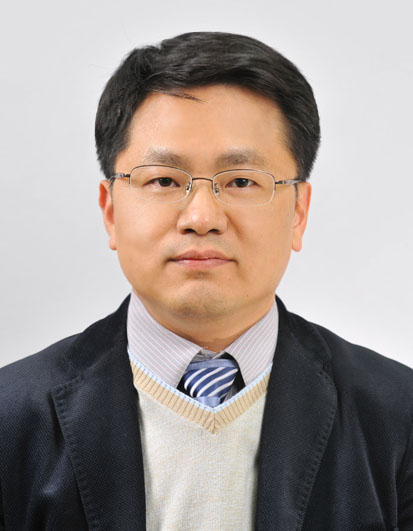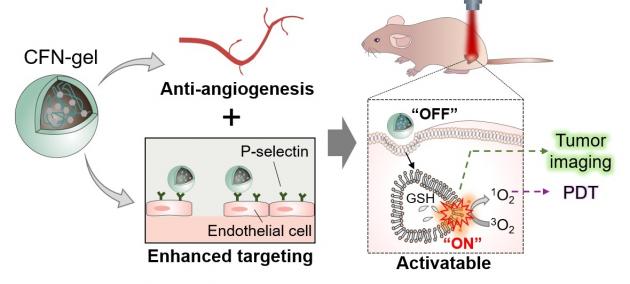A group of researchers at the National Cancer Center (NCC) has discovered a new material that selects and kills cancer cells and cancerous blood vessels.
The research team, led by Professor Choi Yong-doo of the Division of Translational Science, combined a photosensitizer effective for photodynamic therapy with fucoidan, a component in seaweed, by using a disulfide linker and synthesizing it into a nano-size gel.

A fucoidan-based theranostic nanogel loaded with photosensitizers moves through blood vessels and enters into cells while binding with proteins present on the surface of cancer cells and cancerous blood vessels. The subsequent dissociation of disulfide bonds causes the photosensitizer to generate a near-infrared fluorescence signal to identify the location and boundary of cancer in real-time.
During the process, giving light to cancer cells causes photosensitizers to produce reactive oxygen in a chain reaction to kill cancer cells and cancerous blood vessels selectively. However, these reactions do not cause damage to healthy cells and blood vessels.
Moreover, the researchers found that the fucoidan-nanogels itself release selective cytotoxicity to cancer cells and kill them as well as inhibits the production of blood vessels that supply nutrients to cancer cells.
As a result of testing the combined anticancer activity on animals, the researchers confirmed that all cancerous tissues of the mice completely disappeared after three days of photodynamic treatment. They also saw no side effects on healthy tissues through blood and biopsy analysis.

"We expect the fucoidan-nanogel will prove to be an excellent target therapy material for detecting and treating cancer," Professor Choi said. The research was conducted as part of the Ministry of Oceans and Fisheries’ biotechnology technology development project.
The study was published in the February online issue of Nano-Micro Letters, which is the world's leading magazine on the material study. The research team has applied for registering the patent of fucoidan nanogels here and abroad while transferring the technology to BioActs, the state cancer center said.

